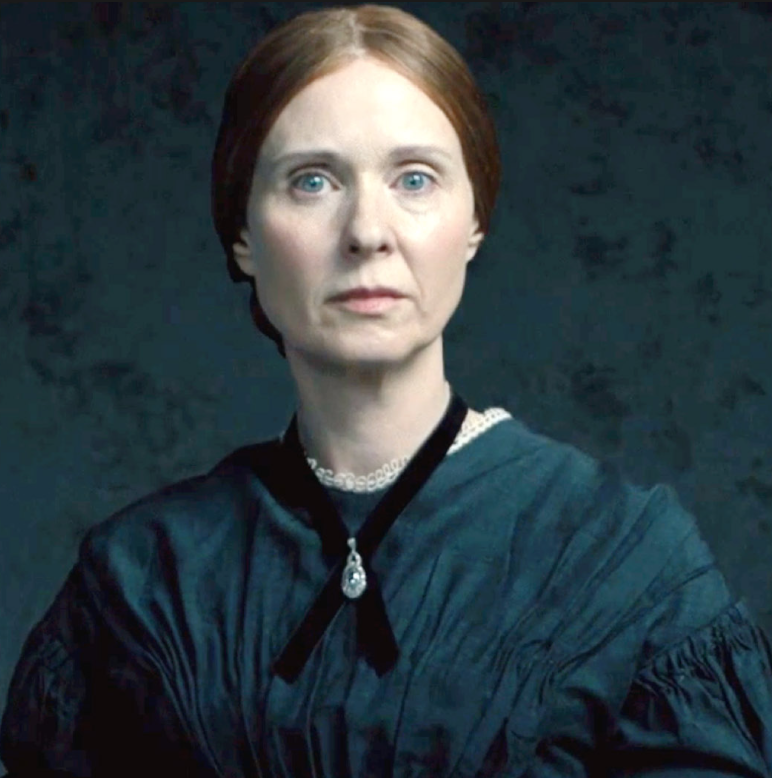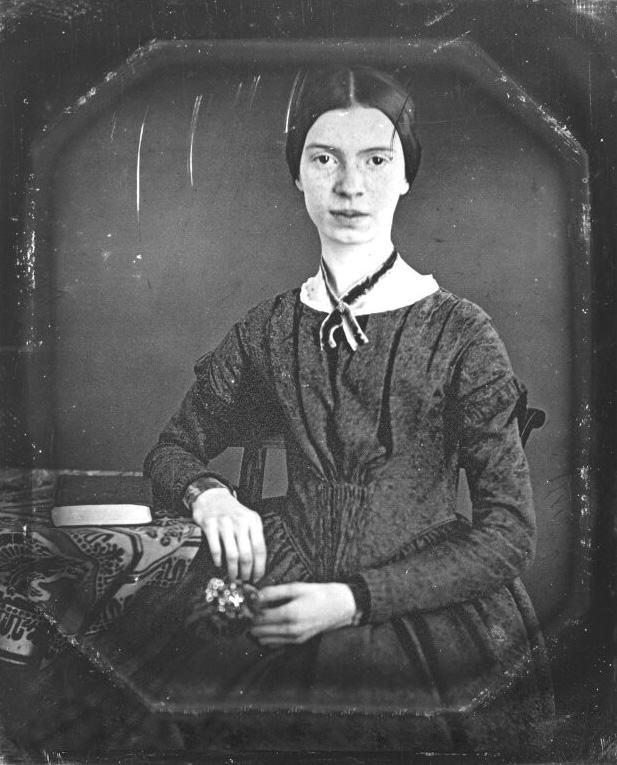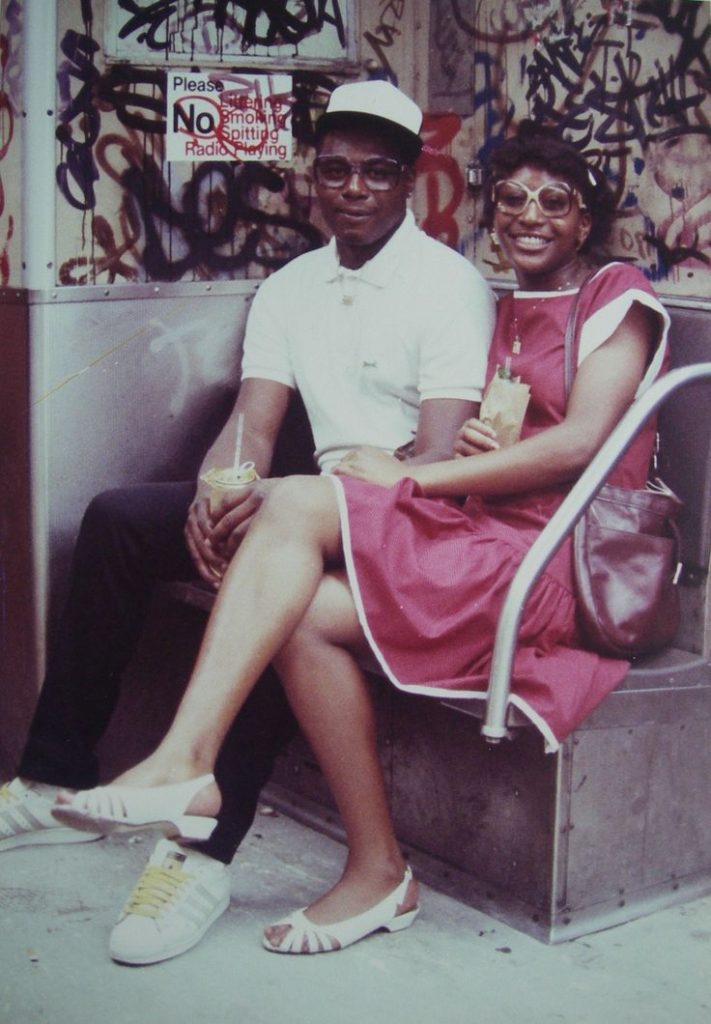 I slipped into the theater as Cynthia Nixon was cooing to a newborn: “I’m nobody! Are you nobody too?”
I slipped into the theater as Cynthia Nixon was cooing to a newborn: “I’m nobody! Are you nobody too?”
It was the newly renovated Quad Cinema, and I’d scored a ticket because I was presenting the Emily Dickinson film, “A Quiet Passion,” to a cinema club later in the week. Normally I would not be spending such a beautiful afternoon indoors, but I’d had a terrible writing morning—the sort that robs one of all confidence and joy—and I was keen to get out of my house, neighborhood, and head, in exactly that order.
The new Quad seemed a lot like the old Quad, down to ticketing confusion and the long, skinny screening rooms with tiny screens, but the seats were more comfortable and the film a stately swoon. I settled into the story that had begun 20 minutes before my arrival, and tried to block everything out.
Dickinson was bright and glaring in her strong tempers, with the knit brow and bitten lip of a nineteenth-century woman heeding too many wrong lessons. She and her kin bickered against the austere backdrop of their Amherst estate, and I sat back against red cushions and exhaled in pleasure. This was not the New England of so many films-forbidding and confined to a palette of greys and more greys. This was the New England I miss 25 years after emigrating to New York: amused and amusing, with bursts of colors so extravagant that there’s no point in competing with your own person.
Emily Dick, as I used to call her in gender studies classes, is someone I’ve never entirely understood. The self-pity curlicue-ing between her lines puts me off, the many hyphens–an assault of breathless passive-aggression–and querulous petitions for recognition. “I’m nobody,” indeed.
But she’s been percolating in my mind, and only partly because she’s been making the culture-vulture rounds. A few Fridays ago, Virginia and I had one of our friendship dates at the Morgan Library, and were surprised by the poet’s bold journals and letters.  Alternately indignant and enthused, her rantings–so urgent, so finely tuned–seemed to speak more to 2017 museumgoers than her 19th-century contemporaries, and I suddenly grasped why she’d trapped herself in that attic: She already was trapped in time. As a mother of invention rather than a child of her era, she had spawned so much with no one to receive it. So she’d trumpeted,“Soul, take thy risk,” and retreated to her attic room.
Alternately indignant and enthused, her rantings–so urgent, so finely tuned–seemed to speak more to 2017 museumgoers than her 19th-century contemporaries, and I suddenly grasped why she’d trapped herself in that attic: She already was trapped in time. As a mother of invention rather than a child of her era, she had spawned so much with no one to receive it. So she’d trumpeted,“Soul, take thy risk,” and retreated to her attic room.
Nixon’s performance is brave if not entirely successful. At times, as when Emily succumbed to seizures of ill health, I repressed giggles; her flailings were so milk toast. But I never stopped sympathizing. This is more of a testament than you’d think, for as a radical empath I abandon compulsory sympathy in order to survive the hurricane of others’ pain and perversions. “Just because I feel it doesn’t mean I have to feel bad about it” is my motto. I wonder if Dickinson ever learned this lesson. Her poetry would suggest otherwise, for it is so pure that she likely never calibrated her instrument to accommodate the world’s crudeness. “A Quiet Passion” captures this with such wit and patience that it soothed my heart and enflamed nerves.
The enflamed nerves had nothing to do with the film and everything to do with my journey to get there.
I should have been on an earlier train. But the film publicist had given me the wrong time, so at 4:15 I was hurdling toward a film that already begun though I thought myself early.
At the station after my own, the subway doors slid open and there, standing directly parallel to where I was sitting, was a man I’ve fancied for longer than I like to remember. He saw me and did not react, which was unsurprising. His poker face is legendary, as is his beard, which obscures everything but the broadest of smiles.
As he entered the car, I burst out laughing. No one has ever accused me of a poker face, and it was the third time we’d run into each other that week after months of being out of communication.
“Sit down here,” I said. “I can’t have any more hipsters next to me.” The woman to my left sniffed, and he looked askance at my rudeness.
“I’m awful,” I said to both of them, and she smiled wanly. Mollified by my apology, he sat down, and worldessly opened his canvas tote to reveal a forty of rosé. This made me laugh harder.
“I’m the worst,” he said. “Next to me,” I said. The woman to my left nodded, which made me feel justified in my rudeness. He smiled broadly.
“Where are you going?” he asked.
“To the new Terence Davies,” I said. Then I took a breath and said, “You should come.” As I invited him, I shook my head at myself. I’d sworn I would stop inviting him to things a long time ago.
“I think I should stick the course today,” he said and looked at me from under long lashes.
I took another breath. “Why resist this beautiful synchronicity?”
He shook his head. “I experience multiple synchronicities, Lisa.”
It was the hardest hit I’d sustained since Mr. Oyster had suggested I consider Botox, so I kept mum until he reached his stop, and focused on blank spaces between blank spaces until I could disappear in someone else’s movie. But Emily Dickinson provided more solidarity than respite. Too much solidarity, really.
As she raged about her inability to connect, her profoundly unquenched passion, I felt the wetness on my cheeks before realizing I was crying. Alone together feels so acute in the shadow of spring’s invitation.
Around me sat mostly senior citizens, and I felt glad. They comprise the most ardent audiences of fine films, I’ve noticed, and also the most respectful—no smartphone flashes, no loud snacking. But I also felt glad because by the time most humans have been on the planet for a while, they possess the gravitas lent by serious heartbreak. I did not think I could bear any more glibness that day.
As Emily cried bitterly about her married pastor, and I cried bitterly about my subway encounter, a white-haired woman appeared and stood uncertainly in the aisle. Suddenly, a hand shot out from the dark, and grabbed her arm. She gasped and sat down abruptly. “I wasn’t sure it was you,” she whispered, and two silhouettes became one.
♥♥♥♥♥♥♥♥♥♥♥♥♥♥
 I’d thought this story was over, though if it’s never truly over so long as he resists our mystical bond. So I sat on a West Village stoop and related the afternoon’s events to Lauren on the phone as the sun sat behind me. Then Mr. Oyster’s sugar mama–a woman who has caused me more tsuris than my feminist consciousness likes to admit–sauntered by and gave me the evil eye. I waggled my eyebrows, and burst out laughing for the second time that day.
I’d thought this story was over, though if it’s never truly over so long as he resists our mystical bond. So I sat on a West Village stoop and related the afternoon’s events to Lauren on the phone as the sun sat behind me. Then Mr. Oyster’s sugar mama–a woman who has caused me more tsuris than my feminist consciousness likes to admit–sauntered by and gave me the evil eye. I waggled my eyebrows, and burst out laughing for the second time that day.
As I described the interaction to my friend still on the line, she began laughing, too. “I give up,” I said. “This day has so many sorry coincidences it’s got a charm all of its own.”
I was lucky to have a friend who understood.
